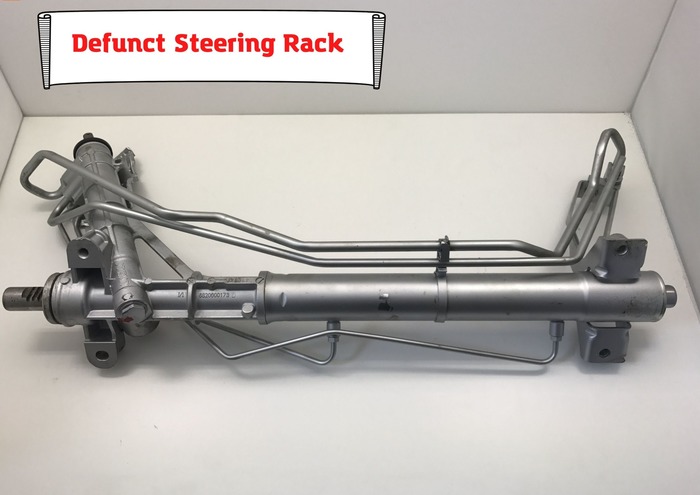
Every vehicle is equipped with a steering system that allows the driver to regulate the vehicle's direction. The steering wheel of a vehicle assists the driver in gaining control over the vehicle's direction of travel. If your steering system isn't working properly, you're going to have a lot of issues. It will also make your vehicle unsafe for you and other drivers on the road.
One of the most prevalent issues with steering wheels is that they can become difficult to steer, and because most drivers turn their vehicles at moderate speeds, a stiff or tight steering wheel becomes most noticeable.
Imagine trying to turn or changing lanes and the steering wheel suddenly becoming difficult to turn or locking up. You will have many problems navigating your way if your steering system isn't working. More significantly, your car will pose a safety risk to its occupants and other road users. This can result in an accident, resulting in injury or even death.
The power steering system is comprised of numerous components. Aside from the serpentine belt and pump, the system includes hydraulic power steering fluid, which works in tandem with the piston to allow you to spin the wheel with minimal resistance effortlessly. If any of these system components were to fail, you wouldn't be able to use the power steering to help you turn the wheel.
Here are a few common causes of a hard and stiff steering wheel in your car.
Low Power Steering Fluid
Inadequate power steering fluid in the system is the most prevalent cause of a stiff steering wheel. If fluid leaking from the pressured hose area occurs, this problem can occur. The problem can be temporarily solved by refilling the power steering tank with liquid, but the leak must be addressed.
Thick Steering fluid
Like all other fluids in a car, the power steering fluid can deteriorate with time. It can thicken or lose its lubricating properties. Power steering fluid acquires dirt and particles over time, much like any other fluid type in a car. If you don't change it within the stipulated time, it becomes too thick to flow freely and lubricate all parts of the system. At low speeds, it makes turning the steering wheel very difficult. The only method to get rid of the bad fluid is to clean it out and replace it with new. When changing your power steering fluid, stick to the manufacturer's recommendations.
Defunct Steering Rack

The pinion and rack are the two components of the steering rack. Ideally, the steering rack is held in place by a system of U-joints and shafts. Over time, simply driving your vehicle will cause the steering rack to get worn out and damaged.
If your steering wheel is stiff or tight just after you've started your vehicle, this is what you're dealing with. The steering rack will become hotter as the engine runs and warms up, causing the lubrication to make its way around a little better.
As a result, as the car operates, the steering wheel can become less firm. However, before the situation worsens, you should get the steering rack replaced.
Poor functioning of the power steering pump
Along with the fluid, the pump is critical in ensuring that the power steering system maintains the proper pressure level. The power steering pump delivers the precise amount of pressure required to turn the steering wheel effortlessly. Turning the steering wheel becomes difficult when the pump fails, especially at low speeds. The wheel will not entirely stall with a faulty pump. You'll be able to move it, but it'll require a lot more work, which could be dangerous if you need to make a quick turn on the road.
As the steering pump isn't working properly, it can also make a buzzing noise when you turn the wheel. Have your pump inspected by a competent mechanic if you notice these symptoms.
Damaged Serpentine belt
Another common reason for a stiff steering wheel is serpentine belt cracking or snapping. When the belt begins to wear out and become slack, the wheel shows signs of stiffness. Repair or replace the belt as quickly as possible, as failure to do so could cause the belt to snap, rendering the steering wheel useless.
Conclusion
A tight or stiff steering wheel indicates that your vehicle's power steering system is malfunctioning and should be examined by a professional auto mechanic as soon as possible. Many factors may cause your steering wheel to be hard.
About the authors
The CarAraC research team is composed of seasoned auto mechanics and automotive industry professionals, including individuals with advanced degrees and certifications in their field. Our team members boast prestigious credentials, reflecting their extensive knowledge and skills. These qualifications include: IMI: Institute of the Motor Industry, ASE-Certified Master Automobile Technicians; Coventry University, Graduate of MA in Automotive Journalism; Politecnico di Torino, Italy, MS Automotive Engineering; Ss. Cyril and Methodius University in Skopje, Mechanical University in Skopje; TOC Automotive College; DHA Suffa University, Department of Mechanical Engineering






Add comment